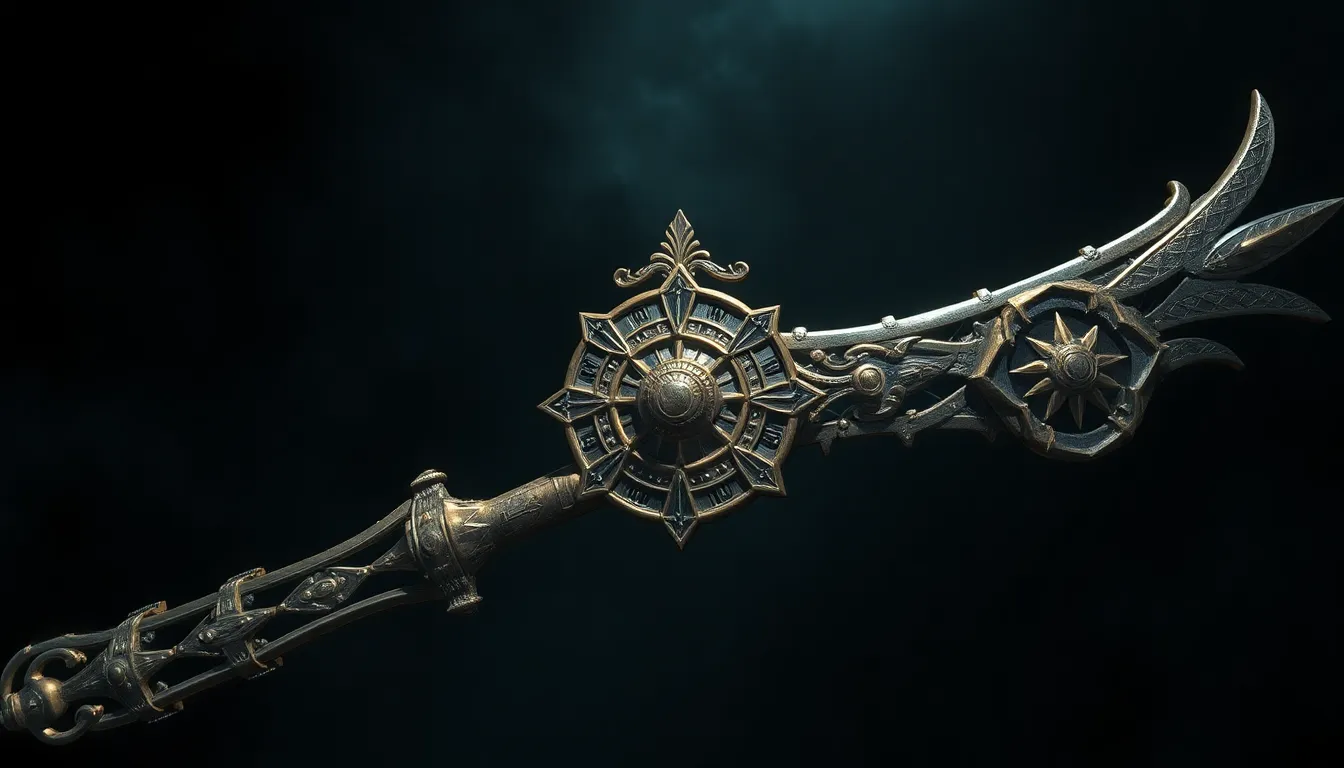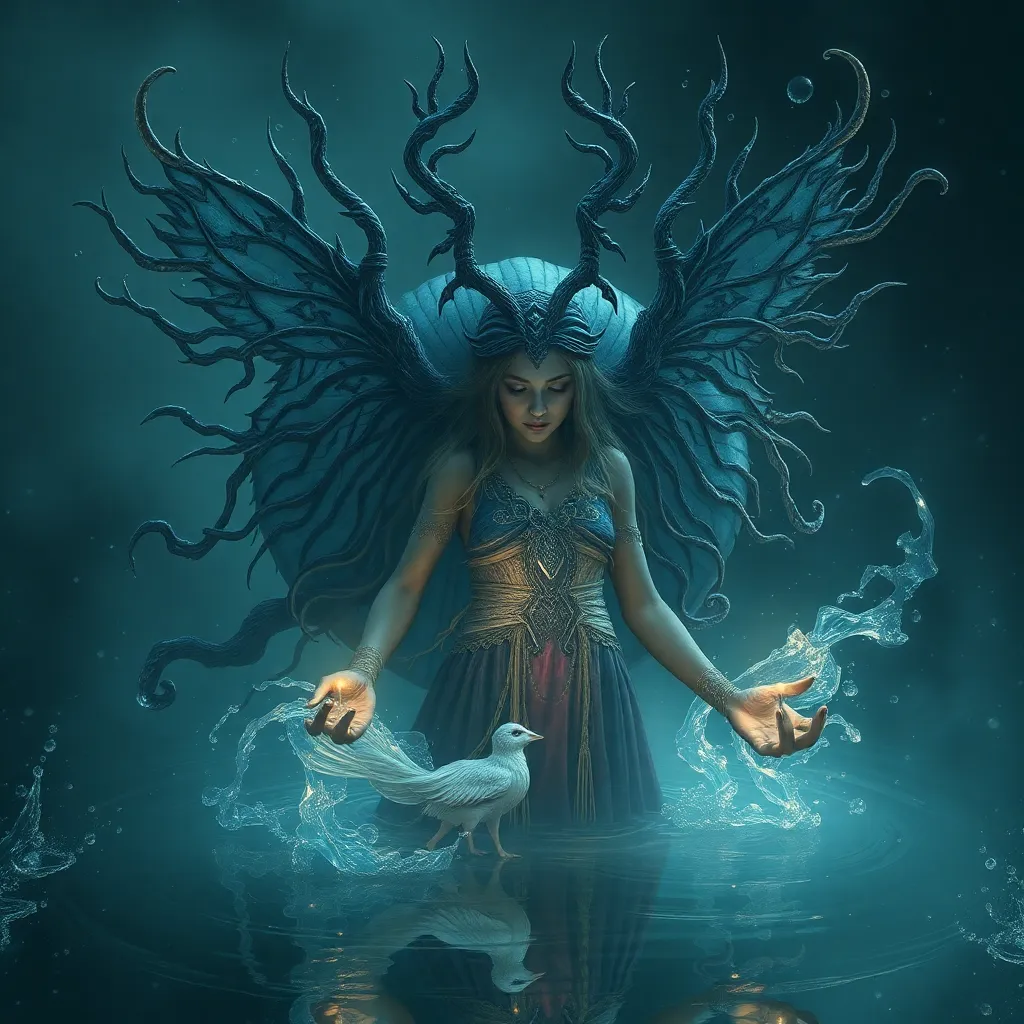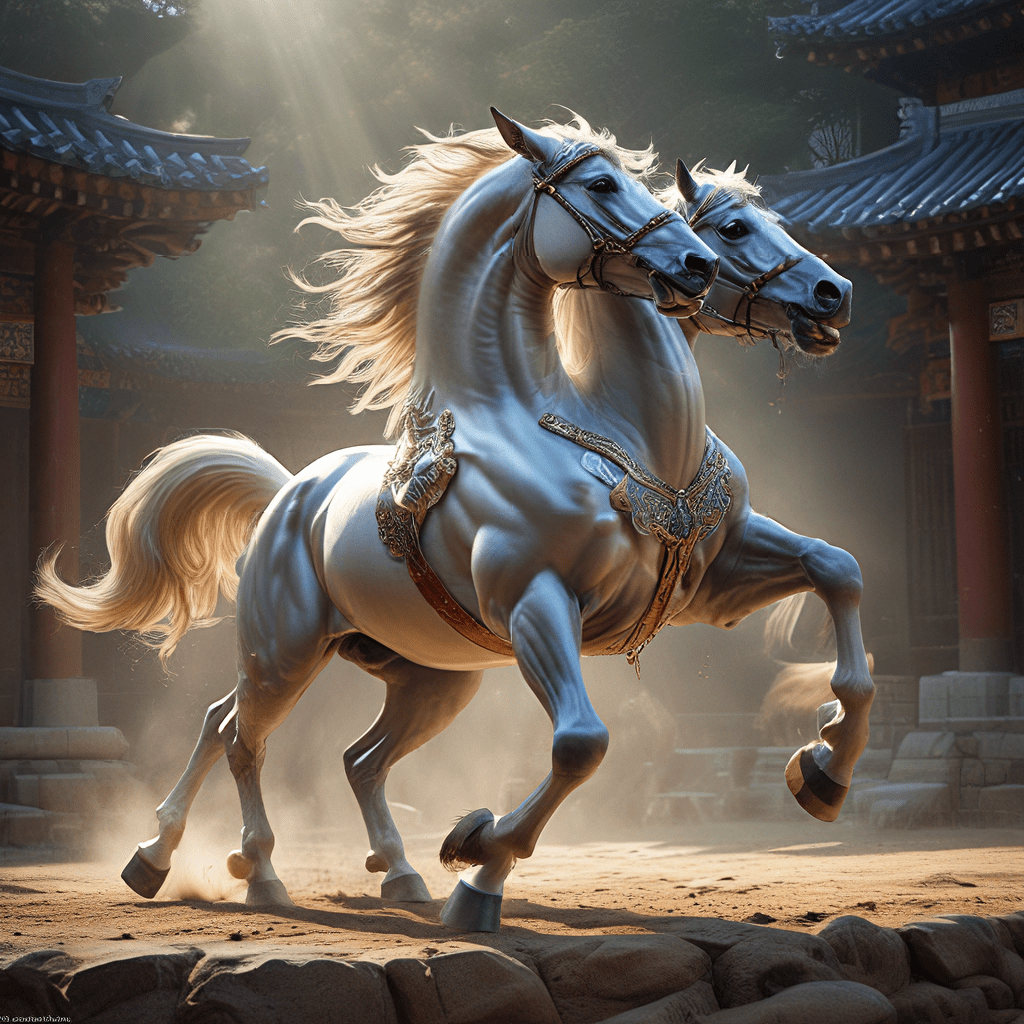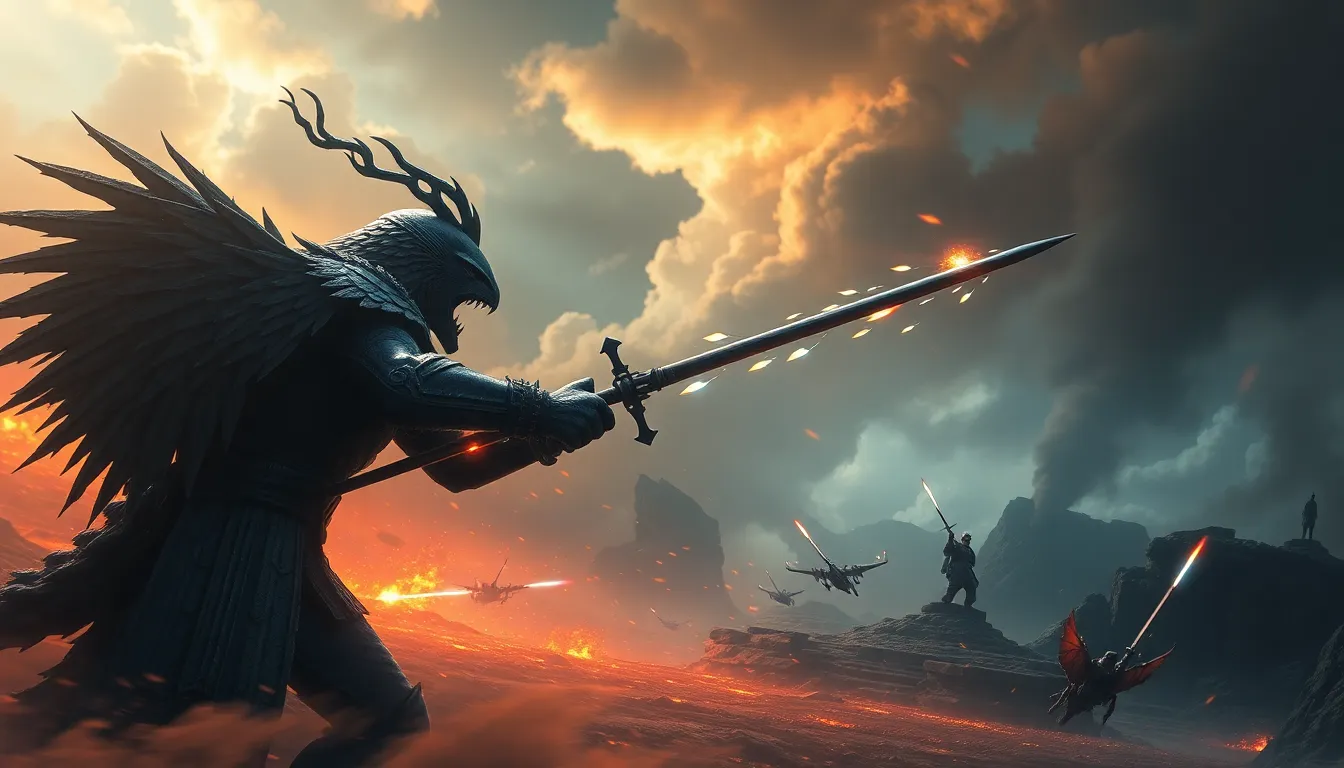The Mythical Armaments That Shaped Civilizations: A Deep Dive
1. Introduction to Mythical Armaments
Mythical armaments, often depicted in stories and legends, serve as powerful symbols within cultural lore. These legendary weapons transcend mere tools of warfare; they embody ideals of power, protection, and identity. Throughout history, civilizations have created narratives around these weapons to reflect their values and aspirations, granting them significance that resonates across generations.
2. The Role of Myth in Weaponry
Myths play a crucial role in shaping the perception of weaponry. They transform ordinary objects into extraordinary symbols, often attributing them with supernatural qualities or historical importance. The stories surrounding these weapons can influence societal beliefs and behaviors, creating a cultural framework through which people understand concepts of justice, heroism, and valor.
Some notable case studies of mythical weapons include:
- Excalibur: King Arthur’s sword, representing rightful sovereignty and divine kingship.
- Mjölnir: Thor’s hammer, symbolizing protection and the power of thunder.
- Kusanagi-no-Tsurugi: A Japanese sword associated with the divine and the imperial lineage.
- The Sword of Gryffindor: A symbol of bravery and reward in the Harry Potter universe.
3. Legendary Weapons Across Civilizations
Many cultures have given birth to legendary armaments that not only serve as tools for battle but also as cultural icons. Here’s a closer examination of some of the most famous mythical weapons:
- Excalibur: In Arthurian legend, Excalibur is not just a sword; it is a symbol of Arthur’s right to rule and the unification of Britain. The sword is often associated with magical properties, bestowed upon Arthur by the Lady of the Lake.
- Mjölnir: The hammer of Thor, Mjölnir is a formidable weapon that represents protection and the power to restore balance in the cosmos. It is celebrated in Norse mythology for its ability to return to Thor after being thrown, symbolizing the warrior’s unyielding strength.
- Kusanagi-no-Tsurugi: This legendary sword is part of Japan’s imperial regalia and symbolizes the divine right of the emperors. According to mythology, it was obtained from the tail of an eight-headed dragon and is associated with the god Susanoo.
- The Sword of Gryffindor: Within the Harry Potter universe, this sword is imbued with the bravery of its wielders. It represents the valor and courage needed to confront evil, making it a powerful symbol in the fight against dark forces.
4. The Symbolism of Mythical Weapons
Mythical weapons often represent more than just physical might; they encapsulate ideals such as heroism, justice, and divine favor. These symbols have played a pivotal role in shaping societal values and norms, influencing how cultures perceive morality and leadership.
For instance:
- Heroism: Many legendary weapons are wielded by heroes who embody courage and determination, inspiring generations to strive for greatness.
- Justice: Weapons like Excalibur are often linked to rightful justice, with their wielders tasked with maintaining order and protecting the innocent.
- Divine Favor: Weapons such as Mjölnir are seen as gifts from the gods, representing the blessing of divine power upon a chosen individual.
5. Mythical Armaments in Warfare and Politics
Throughout history, mythical weapons have influenced real-world power dynamics. Leaders and armies have invoked these legendary narratives to bolster their legitimacy and inspire their followers.
Some notable instances include:
- The Sword of Charlemagne: Often associated with divine kingship, Charlemagne wielded a sword that became a symbol of his authority in the Holy Roman Empire.
- Napoleon’s use of Excalibur: Napoleon Bonaparte leveraged the legend of Excalibur to position himself as a modern-day king with a divine mandate.
6. Cultural Legacy and Artistic Representation
Mythical armaments have left a significant mark on literature, art, and media. They continue to inspire modern storytelling, appearing in films, video games, and novels.
Examples include:
- Films: Movies like “King Arthur: Legend of the Sword” and Marvel’s “Thor” highlight the enduring allure of these legendary weapons.
- Video Games: Titles such as “God of War” and “The Legend of Zelda” incorporate mythical weapons, engaging players with their rich narratives.
7. The Psychological Impact of Mythical Armaments
Mythical weapons evoke a profound psychological impact on the collective psyche of civilizations. They inspire fear, awe, and reverence, shaping cultural identity and collective memory.
These emotions play a crucial role in the creation and perpetuation of legends surrounding these armaments, reinforcing societal values and beliefs.
8. Modern Interpretations and Relevance
In contemporary society, mythical armaments continue to resonate. They are often reinterpreted in pop culture, bridging ancient myths with modern narratives.
Examples include:
- Movies and Television: Series like “Game of Thrones” and films such as “Wonder Woman” draw on legendary themes to explore contemporary issues of power and morality.
- Literature: Modern authors often reference mythical weapons to evoke themes of heroism and sacrifice in their narratives.
9. Lessons from Mythical Armaments for Today’s Society
The stories surrounding mythical weapons offer valuable insights for modern society. They highlight themes of bravery, justice, and the struggle against adversity.
Lessons include:
- The importance of courage: Heroes wielding mythical weapons often face immense challenges, teaching us the value of bravery in the face of adversity.
- The quest for justice: Many legends emphasize the need for justice and the protection of the vulnerable, relevant ideals in today’s world.
10. Conclusion: The Enduring Legacy of Mythical Armaments
Mythical armaments have left an indelible mark on civilization, shaping cultural narratives and societal values. Their stories continue to inspire, reminding us of the power of myth and the lessons it imparts. As we reflect on these legendary weapons, we recognize their timeless relevance, encouraging future generations to appreciate the rich tapestry of human storytelling and the morals embedded within.




